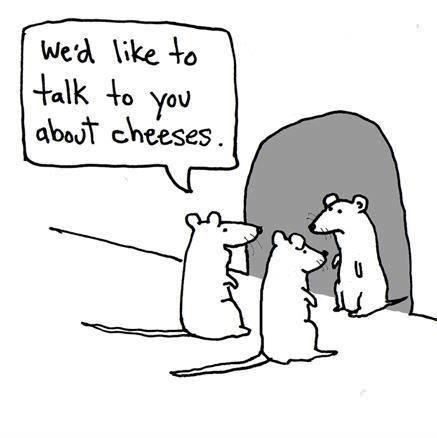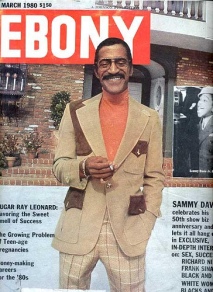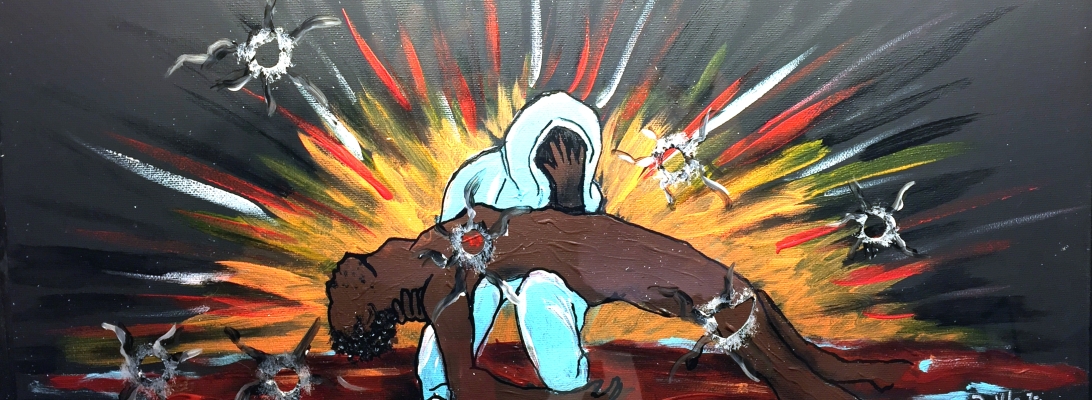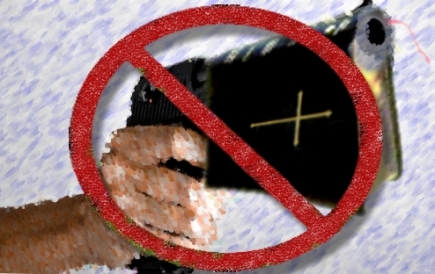There are all sorts of people who are more wise and educated out there trying to divine the nature of the pathological illness besetting the United Methodist Church and mainline churches in general. This is neither a comprehensive nor systematic analysis. This is a confessional statement.
 I am not an evangelical. It is not my heritage, even though I am a multi-generational Methodist. I am not sure (and even as I say this I realize I am not a certified historian) that John Wesley would claim evangelicalism as it is popularly defined today. There is a whole lot more of “join us the way we define us or burn in hell” than “in all things charity” to today’s evangelicalism.
I am not an evangelical. It is not my heritage, even though I am a multi-generational Methodist. I am not sure (and even as I say this I realize I am not a certified historian) that John Wesley would claim evangelicalism as it is popularly defined today. There is a whole lot more of “join us the way we define us or burn in hell” than “in all things charity” to today’s evangelicalism.
But however it is defined I am not an evangelical. I have no burning desire to sell my version of faith to anyone. Yes, if someone is interested I would have lengthy conversations about how I understand faith and God and the universe but I would never walk up to anyone else and and ask if they want to know that stuff. Even as ordained clergy.
The Methodist church I grew up in was not overly proud of its faith. Not in the “I have a better faith than you do” sense. Not in the “let me win you for Jesus” sense. In fact, that latter idea kind of embarrassed us. We followed Jesus and his teachings because it made the world and us at least a little bit better. Not because it carved a notch in some spiritual gun butt.
A change adopted for the 2000 Book of Discipline made a stark change in that sensibility. The United Methodist Church adopted a mission statement that said simply: “The mission of the church is to make disciples of Jesus Christ.” Nothing about making the world a better place, nothing about making us better. I believe that the our leadership and voting delegates bought the popular notion of the time that liberal churches were dying and evangelical churches were growing. In the first major reflex reaction to the perceived foundering of the institution, they joined the wave of fear-based desperation that lurched in any direction promising to restore the glory days of the church. “To make disciples of Jesus Christ” was a bald attempt to “add abundantly to our numbers.” And The UMC has been numbers obsessed ever since.
I bought into that wave-riding for a time. I tried to live up to the idea that pastors were supposed to be chief number generators (and, by the way, feeling woefully inadequate to that task). Everything else has become secondary to that primary emphasis: grow the church. And grow the church at any cost. Repaint the walls in evangelicalism. Rewrite the script to include more words about Jesus or the bible or saving souls. Anything to bring warm bodies into the church.
Now the United Methodist Church I grew up in (it was the Methodist Church for the first few years, formative ones I suppose, but also rather beyond my memory) eschewed the term evangelism. I recognize that this probably reflects the local churches I was a part of and may not be indicative of the denomination at that time. Nonetheless, those Methodists around me were embarrassed by evangelism. They were all about making the world better, more like the kingdom the Jesus was trying to bring about, more filled with justice and compassion and equality and human dignity. But to win somebody over for Jesus was at the very least distasteful. One’s relationship with Jesus was personal, not public.
This was the time when the Methodists had come to accommodation with a number of social changes. Divorce, once reason for exile in religious circles, was recognized and if not outright accepted at least tolerated as reality of modern society. Likewise alcoholism shifted from condemnation in churches to understanding, accepting the concepts of addiction and recovery. Whereas my grandparents, Methodists from way back, vilified dancing and movies and gambling in any form, the United Methodist Church I grew up in took a more moderate stance. It chose, it seemed to me, to stand within a society that had come through enormous changes (think about the civil rights movement, the Vietnam war, the sexual revolution, as well as the economic shifts of unionism following the second World War) rather than being a rigid voice opposing these changes for the sake of an illusory consistency.
What this stance did, more or less subtly, was to adopt a more moderate and reasoned approach to biblical authority. Since the beginning of the 20th Century, fundamentalism captured the popular imagination as the predominate method of biblical interpretation. Mind you, it is not the only nor even the best method. Still the narrative it employs was (and seemingly continues to be) an easy sell: the bible says exactly what God wants it to say. Even more so, it is God’s actual words somehow divinely transmitted via inspired human conduits. This method leaves no room for conversation, no accommodation or adaptation to changing culture or even newer and better translation of ancient words and anthropologies. It is literally God’s words, and as such the last word.
But mid to late 20th Century Methodists applied a practical methodology to their theology. Divorce, alcoholism, and a host of other complicated human behavior were not going away. There were a part of the fabric of life in the modern age. Christianity had to create a relevant approach to this complicated life. Despite what a literal reading of the bible said about any of these situations, the church opted for a compassionate and understanding response. In the simplest terms, compassionate love was a higher authority than literal interpretation. This is not to say that the bible is unimportant. But it was not the last or only word in the Church’s ongoing conversation with the world.
By the 1980’s the decline in attendance and membership in the United Methodist Church was undeniable. The first ripples of panic were affecting the institution.The prophets of doom began to circulate the “wisdom” that the liberal or mainline churches were dying. This was the zenith of the megachurches. These conservative tent shows were drawing in people by the thousands. Those within the UMC looked around for explanations to the denomination’s decline and, whether it was spoken of directly or not, the fear loomed large that open-minded theology and historical-critical biblical interpretation were a hard sell in that current atmosphere.
Church leadership began to look for a solution to the declining membership conundrum. One strategy hit upon was to devise a mission statement for the denomination. This would focus its identity and energy in a common direction. It also, I guess, was a way of addressing the liberal/conservative – who is growing and who is declining fear. The proposed mission statement was an encapsulation of the Great Commission: go into all the world and make disciples. It glossed over the Wesleyan twinning of social gospel and personal gospel. Personally, I think it was an attempt to repackage Methodism as a more conservatively acceptable form focusing solely on evangelism. The Great Commandment (love God and love your neighbor) would have been as biblically compelling a mission statement but more challenging for the ways we would act and move in our society as the Church.
“To make disciples for Jesus Christ” was simple and salable. It was a clear nod toward those voices in the denomination (and wider world) that a shift was occurring. It (maybe inadvertently, maybe not) validated the stricter interpretation of the bible which was a part of the crowd being courted. And it set the stage for the inability of the United Methodist Church to create a healthy and embracing position on human sexuality. While other societal shifts were “grandparented” in, homosexuality was opposed on the grounds of a strict biblical interpretation. We have been unable to move past what the bible says to hear what the Word is saying in a new world. Because “evangelical” has become synonymous with conservative and even fundamental, our denomination has become both spiritually and functionally ossified. Even though the mission statement was subsequently modified and the phrase “for the transformation of the world” pinned on, the direction had been set.
“Making disciples for Jesus Christ” set our direction and, I believe, was the moment the United Methodist Church sold its soul. Our inability as United Methodists to transform ourselves into a compassionate, world-relevant, culturally erudite community of faith is a direct result of that direction. This is nowhere as evident as in our condemnatory position on homosexuality. While not directly stated, the implication is that only certain kinds of disciples are correct or acceptable. Only heterosexual disciples need apply, as if that is the sole defining characteristic of humanity. As if that is the Rubicon of religious or spiritual acceptability within United Methodist (or Christianity at large). By allying ourselves with the readers of a narrow orthodoxy, we denied our historical identity as a church of compassionate, social adaptation and transformation. And because we have denied that identity, those who look at us from outside our closed circle read us as disingenuous.And that more than anything else I believe is the primary contributing factor to today’s ongoing decline in the vitality of the denomination in the west.
We have been at our best when we have been a movement of adaptability and social engagement. The early Methodist classes worked to alleviate suffering, hunger, illness, and oppression. The invitation to discipleship was to enter into kin-dom building. It seems to be that we began as a movement that was more aligned with the great Commandment than the Great Commission, not that the two are mutually exclusive. Evangelism was not about reporting numbers, it was recruiting workers to rebuild a hurting world. In essence, since the adoption of our mission statement we have over-emphasized the biblical corner of the Wesleyan Quadrilateral.In a desparate but obstensively well-reasoned attempt to breathe life into the two hundred plus year old denomination, we diverted from who we were becoming and away from our life-giving core.
It is past time to reassess our mission and our identity. Being evangelical alone will not move us fully into the 21st Century, will not fulfill either our calling or our potential as presence in our culture and world. It is time to reclaim our soul as a denomination that loves and embraces the world we live in.

 We have ninja ketchup in our fridge. It’s ninja because everytime I open the door to find it, the ketchup turns invisible. I look and look, and yes I move stuff around but all to no avail. I tell my wife that it must be time to get more ketchup and she asks “why?” as she reaches in and pulls out the bottle of ketchup that has been sitting there all the time. It was there but I couldn’t see it.It was ninja.
We have ninja ketchup in our fridge. It’s ninja because everytime I open the door to find it, the ketchup turns invisible. I look and look, and yes I move stuff around but all to no avail. I tell my wife that it must be time to get more ketchup and she asks “why?” as she reaches in and pulls out the bottle of ketchup that has been sitting there all the time. It was there but I couldn’t see it.It was ninja. , North Dakota thought my dad was an odd duck. Well, maybe not everybody there, but maybe just the people at the post office.
, North Dakota thought my dad was an odd duck. Well, maybe not everybody there, but maybe just the people at the post office. 

 I would say that the shooting in Orlando has left me speechless, except here I am writing about it. Well, not the shooting itself, but more the aftermath. Yes, there has been an outpouring of love and support for the LGBTQ community. Yes, I am heartened by the little bits of action toward some kind of sensible gun control (which, sensible or not, constitutional or not, we’ve got to find ways to stop shooting each other). But I am particularly dismayed and disgusted by the mouths of purported Christians that have been shooting madly like deranged sons of Sam instead of children of God.
I would say that the shooting in Orlando has left me speechless, except here I am writing about it. Well, not the shooting itself, but more the aftermath. Yes, there has been an outpouring of love and support for the LGBTQ community. Yes, I am heartened by the little bits of action toward some kind of sensible gun control (which, sensible or not, constitutional or not, we’ve got to find ways to stop shooting each other). But I am particularly dismayed and disgusted by the mouths of purported Christians that have been shooting madly like deranged sons of Sam instead of children of God.

 I am not an evangelical. It is not my heritage, even though I am a multi-generational Methodist. I am not sure (and even as I say this I realize I am not a certified historian) that John Wesley would claim evangelicalism as it is popularly defined today. There is a whole lot more of “join us the way we define us or burn in hell” than “in all things charity” to today’s evangelicalism.
I am not an evangelical. It is not my heritage, even though I am a multi-generational Methodist. I am not sure (and even as I say this I realize I am not a certified historian) that John Wesley would claim evangelicalism as it is popularly defined today. There is a whole lot more of “join us the way we define us or burn in hell” than “in all things charity” to today’s evangelicalism.